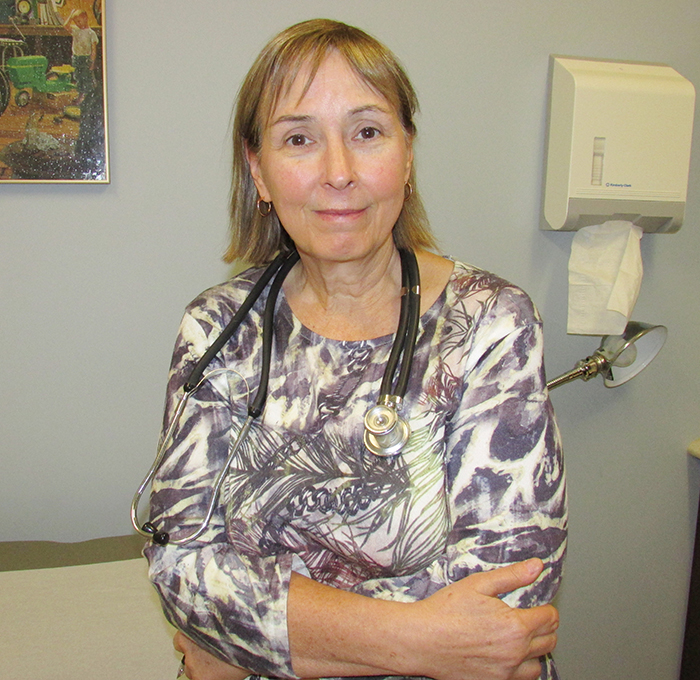
Chatham-Kent family physician Dr. Kate Bailey will be honoured this month as the 2017 Region 2 Family Physician of the Year by the College of Family Physicians of Canada (CFPC).
The announcement was made as part of Family Doctor Week in Canada, celebrated this year Nov. 6-11.
Hailing from Dresden, Bailey has been a family doctor for more than 30 years, and when asked about how she came to receive the honour, Bailey wasn’t sure how it happened.
“It was colleagues of mine that put my name up. I think it was a combination of things. I was quite surprised when I got this award,” Bailey said with a laugh.
“I’m a bit of an old-fashioned family doctor and I think that’s one of the reasons – I call it womb-to-tomb medicine. I deliver babies and look after people, I work at our local hospice and I’ve looked after a whole spectrum of age groups. I figured it out; I’ve looked after as many as five generations of some families,” she added.
As one of the few family doctors that takes pregnant patients, Bailey’s practice is unique.
“In the Province of Ontario, there aren’t a lot of family doctors that do obstetrics. My mentor was Dr. T. L. Walker and he was very much of the old school and we always did everything, so I do everything,” she said.
When you take care of patients from birth to death, you really get to know them and their families, and really know your community, Bailey said.
“The more you know about someone, the more you can try and help them and know their background,” she noted.
Much has changed since she began her practice, with doctors moving into teams instead of separate offices, and technology has made a big difference, which she said can sometimes be a struggle for older doctors. Most family doctors do a lot less hospital work now, and she noted medicine has become much more complex.
There are plenty of medical students interested in family medicine, and being a mentor to those students is part of what Bailey does.
“I teach residents and also students at the Schulich School of Medicine, so part of that was teaching them about family practice and obstetrics because I do family practice and obstetrics so that was all part of being a mentor and teacher for medical students that have come through here,” Bailey said.
For the future, Bailey said she would like to see less money spent on drugs and tests and more money spent on quality of life, particularly for older people.
“I think there are lots of things as far as recreation and nutrition and emotional support where the money could be better spent,” she noted. “I know the money is limited, but I sometimes think a lot of money gets spent on technology and drugs and that’s not really improving the quality of care when you need it the most.”
Being part of a family health team is also a big plus for Bailey, where there is more support for the doctors and for the patients, such as smoking cessation. She said lung disease and smoking are big issues in our area, so that program alone really stands out.
As far as advice for future doctors interested in family medicine, Bailey said it’s important to keep their scopes as broad as possible.
“I’ve been very fortunate; I’ve had very excellent residents. I think they have to think through what they want to have as a practice and a lifestyle. I’ve encouraged people to stay as general as possible, to get a practice and learn about a group of people and actually care for them forever,” she stated. “I appreciate that obstetrics is not something that many can or want to do as part of their practice, but to have a broad-based practice and be able to interact with their patients all the way and not have specialized boutiquey walk-in clinics. I just don’t think that’s good care for anybody. It’s expensive and poor care. If you’re going to be a family doctor, you need to care about the whole context of their life.”
The College of Family Physicians of Canada (CFPC) acknowledges the outstanding contributions of Canadians family doctors and the highly valued relationships they have with their patients and the communities they serve. This week also provides an opportunity for governments, health-care organizations, colleagues and the public to acknowledge the contributions made by family doctors to improve the health and well-being of their patients.






